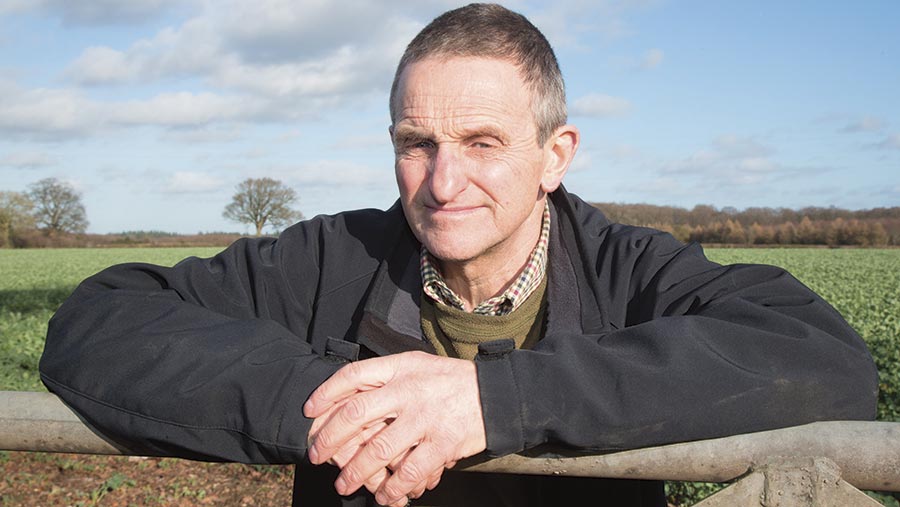Farmer Focus: Leave land in good state for next generations
 Simon Beddows © Tim Scrivener
Simon Beddows © Tim Scrivener I have just seen the John Lewis Christmas advert. Oh dear me.
I thought the boy and the penguin from two years ago was brilliant. However, this year’s effort sent me and my wife Liz on a desperate bid to find the TV remote to escape back to the advert-free safety of the BBC.
It is no wonder that non-country folk have a distorted view of what happens in the countryside when all they get is the cuddly badger sharing a trampoline with foxes and hedgehogs – yuk!
See also: Read more from our Arable Farmer Focus writers
Give me the traditional Christmas card scene of the hunt chasing a fox across the country or a pheasant flying across a snowy landscape, not knowing what awaits him just over the next ridge.
OK, so that’s Christmas dealt with, although I am looking forward to getting all the family together, especially my granddaughter Jessica. It could be even more of a riot than normal.
Following on from last month’s piece about my balance issues caused by an inner ear infection, I can now report that I have recalibrated my brain and I am fully back in action.
Constant review
At this time of year I try to catch up on my Basis points by attending various conferences and events while also planning for next season and beyond.
To keep the farm moving forward I need to constantly review what we are doing and how we can continue to improve.
Obviously, with the political uncertainty of Brexit this is even more important than usual. I hope I can demonstrate to my employers that the farm is in safe hands and that I am determined to still be farming profitably in the future.
We need to take a view about the land we oversee so we can hand it over to future generations in at least as good a condition as when we took over – preferably better.
Major decisions made for the wrong reasons can have a detrimental effect on the long-term viability of farms and estates – not just financially, but also in terms of stewardship.
Simon Beddows manages 1,000ha of arable land at Dunsden Green, south Oxfordshire. Cropping is cereals, oilseed rape, beans and forage maize.

